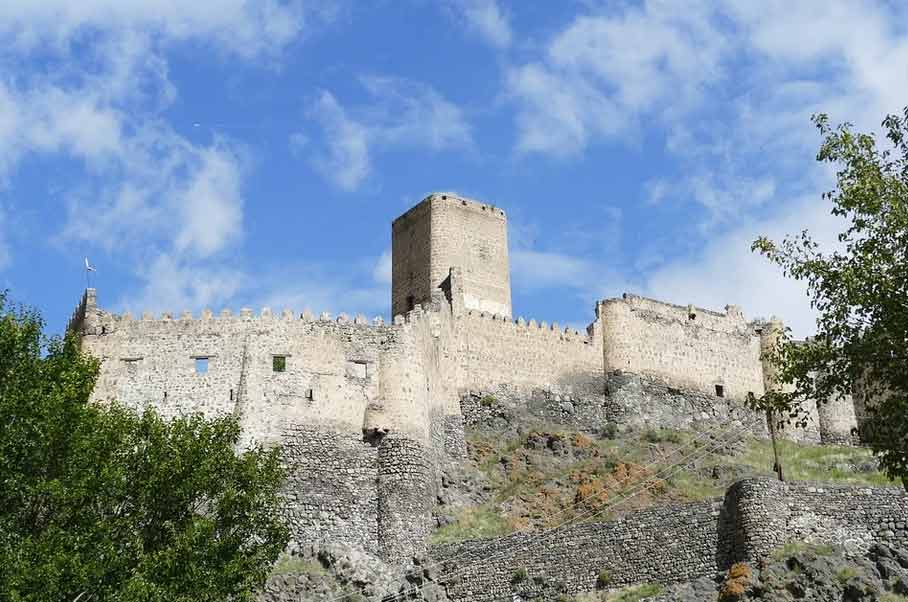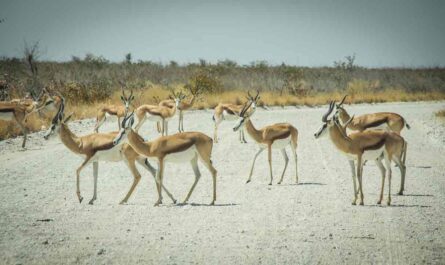What are some of the interesting facts about Benin? Situated between Nigeria to the east and Togo to the west, this small yet enchanting country boasts a diverse tapestry of traditions, languages, and ethnicities. From the bustling markets of Cotonou, the economic hub, to the tranquil shores of Lake Nokoué, Benin offers a myriad of experiences for travelers seeking authenticity and adventure. Once known as the Kingdom of Dahomey, Benin carries a profound legacy of ancient kingdoms and colonial influences, evident in its architecture, art, and customs. Visitors are drawn to its UNESCO World Heritage Sites such as the Royal Palaces of Abomey, where the stories of powerful kings and fierce warriors unfold. In this article, I will talk about some interesting facts about Benin.
Interesting Facts About Benin: History, Culture, Travel
Benin, nestled in the cradle of West Africa, captivates with its rich history, vibrant culture, and breathtaking landscapes. Moreover, Benin’s vibrant Vodun (Voodoo) culture adds a mystical allure, inviting exploration into its rituals and beliefs. With its warm hospitality and unspoiled natural beauty, Benin beckons explorers to discover the treasures hidden within its borders. Here are some interesting facts about Benin:
1. Cotonou, the Bustling Capital: Gateway to Benin’s Vibrant Culture
As the largest city and economic epicenter of Benin, Cotonou pulsates with energy and diversity, offering a captivating blend of tradition and modernity. Nestled along the Gulf of Guinea, this bustling port city serves as a vibrant melting pot of cultures, with bustling markets, lively streets, and colonial-era architecture painting a vivid picture of Benin’s rich heritage. From the vibrant stalls of Dantokpa Market to the historic charm of Haie Vive district, Cotonou beckons visitors to immerse themselves in its dynamic atmosphere, where the rhythms of everyday life intertwine with the echoes of centuries-old traditions.
2. The Pendjari National Park: A Sanctuary of Natural Splendor
Nestled in Benin’s rugged northwest, the Pendjari National Park stands as a testament to the country’s commitment to conservation and biodiversity. Spanning over 4,800 square kilometers of pristine savannah wilderness, this protected area teems with a dazzling array of wildlife, from majestic lions and towering elephants to elusive antelopes and vibrant bird species. Adventurers and nature enthusiasts alike are drawn to the park’s untamed beauty, where guided safaris and immersive experiences offer a rare glimpse into the heart of Africa’s wilderness. Whether tracking wildlife on foot or marveling at breathtaking sunsets over the savannah, Pendjari invites visitors to embark on an unforgettable journey through nature’s grandeur.
3. A Land of Crafts: Celebrating Benin’s Artistic Heritage
Benin’s rich artistic legacy comes to life through its vibrant crafts scene, where age-old traditions blend seamlessly with contemporary creativity. Renowned for its woodcarvings, bronzes, and textiles, the country’s artisans infuse their creations with a deep sense of cultural pride and craftsmanship. From intricately carved masks and sculptures to intricately woven textiles and vibrant batik fabrics, each piece tells a story of Benin’s rich cultural tapestry and artistic ingenuity. Visitors can explore bustling artisan markets, such as the Ganhi Market in Cotonou, to discover a treasure trove of handcrafted souvenirs and immerse themselves in the vibrant colors and textures of Benin’s artisanal heritage.
4. A Young Democracy: Benin’s Journey to Self-Governance
Since gaining independence from France in 1960, Benin has undergone significant political transformations, evolving from a colonial territory to a vibrant multi-party democracy. Over the past few decades, the nation has navigated its way through periods of military rule and civil unrest to establish a democratic system characterized by regular elections, political pluralism, and respect for human rights. Despite facing challenges such as political corruption, economic inequality, and social tensions, Benin remains committed to the principles of democratic governance and continues to strive for inclusive development and political stability.
5. Music and Dance: Rhythms that Resonate with Beninese Spirit
In Beninese culture, music and dance are not merely forms of entertainment but integral expressions of identity, spirituality, and communal solidarity. From the pulsating beats of traditional drums to the graceful movements of dancers adorned in vibrant attire, Benin’s musical and dance traditions captivate the senses and reflect the rich tapestry of its cultural heritage. Whether performed at festive celebrations, religious ceremonies, or social gatherings, music and dance serve as conduits for storytelling, cultural preservation, and collective expression, uniting diverse communities and embodying the essence of the Beninese spirit.
6. The Gele (Headwrap): A Symbol of Elegance and Tradition
In Benin, the Gele holds a revered place as more than just a fashion accessory—it embodies a rich tapestry of culture, tradition, and social significance. Adorned with vibrant colors and intricate patterns, the Gele is meticulously tied in elaborate styles, each fold and twist conveying a story of heritage and identity. Beyond its aesthetic appeal, the Gele serves as a symbol of social status, with variations in size, shape, and adornment indicating the wearer’s rank, marital status, or participation in special occasions like weddings, festivals, or ceremonies. Whether worn as a daily adornment or a statement piece for festive gatherings, the Gele exudes elegance and grace, celebrating the beauty and resilience of Beninese women and their enduring cultural legacy.
7. The Slave Trade’s Legacy: Navigating Benin’s Complex History
Benin’s history is deeply intertwined with the transatlantic slave trade, where countless individuals were forcibly taken from the region and transported to distant shores. As a major exporter of slaves, Benin grapples with the enduring legacy of this dark chapter, confronting its historical impact while striving for reconciliation and healing. Today, the remnants of this painful past serve as poignant reminders of the resilience and strength of the Beninese people, fostering dialogue and reflection as the nation continues its journey towards truth and reconciliation.
8. Cotton Production: Sustaining Benin’s Agricultural Economy
Amidst its verdant landscapes, Benin’s agricultural sector thrives, with cotton emerging as a cornerstone of the country’s economy. Cultivated across vast swathes of fertile land, cotton production plays a pivotal role in driving economic growth and empowering rural communities. From smallholder farmers to commercial plantations, Benin’s cotton industry sustains livelihoods and fosters economic resilience, contributing to the nation’s prosperity while showcasing the agricultural ingenuity of its people.
9. Emerging Tourist Destination: Unveiling Benin’s Hidden Gems
While still in its nascent stages, tourism in Benin holds promise as an emerging destination for intrepid travelers seeking authentic cultural experiences and untamed natural beauty. From the storied streets of Ouidah, steeped in history and tradition, to the pristine wilderness of Pendjari National Park, Benin offers a tapestry of unique attractions and immersive encounters. As infrastructure improves and awareness grows, the country’s tourism sector is poised to flourish, inviting adventurers to embark on a journey of discovery through Benin’s diverse landscapes and vibrant communities.
10. A Rich Literary Tradition: Preserving Benin’s Cultural Heritage Through Words
Benin’s cultural tapestry is woven with threads of storytelling and literary expression, reflecting a rich tradition passed down through generations. From ancient oral narratives that chronicle the nation’s history to contemporary works by local writers, literature serves as a mirror reflecting the soul of Benin. Through prose, poetry, and folklore, Beninese writers capture the essence of their society, offering insights into its complexities, struggles, and triumphs. This literary heritage not only preserves Benin’s cultural identity but also serves as a beacon guiding future generations toward understanding and appreciation.
11. Traditional Religions: Nurturing Diversity Amidst Faith
In the mosaic of Benin’s spiritual landscape, traditional religions stand as enduring pillars, embodying centuries-old beliefs and practices that resonate deeply with the people. While Christianity and Islam have left their imprint, a significant portion of the population continues to adhere to indigenous faiths, honoring ancestral spirits and sacred traditions. Amidst mosques and churches, shrines and rituals remain integral to Benin’s spiritual fabric, fostering a sense of connection to the land and its heritage. In this tapestry of faith, diversity flourishes, weaving a vibrant mosaic of beliefs that enriches the cultural tapestry of Benin.
12. Family Ties: The Bedrock of Beninese Society
At the heart of Beninese society lies the institution of family, revered and cherished as the cornerstone of community life. Strong family ties, characterized by respect for elders and communal support, form the bedrock of social cohesion and solidarity. In Benin, kinship extends beyond bloodlines to encompass neighbors, friends, and even strangers, fostering a sense of belonging and interconnectedness. Whether celebrating milestones or weathering challenges, families in Benin stand united, their collective strength serving as a beacon of resilience and solidarity in a rapidly changing world.
13. The Importance of Cashew Nuts: Nurturing Benin’s Agricultural Wealth
Beyond cotton, cashew nuts stand as another pillar of Benin’s agricultural wealth, contributing to the country’s export earnings and agricultural diversification. Cultivated across the fertile plains and coastal regions, cashew trees yield a bounty of nutritious nuts prized for their versatility and economic value. From local markets to international trade, cashew nuts play a vital role in sustaining livelihoods and driving economic development, underscoring the significance of agriculture in Benin’s quest for prosperity and resilience.
14. The Official Name: Embracing a New Identity
Formerly known as Dahomey, the West African nation officially adopted the name Republic of Benin in 1975, symbolizing a transformative shift in its political and cultural landscape. The change marked a departure from colonial legacies and a reaffirmation of national identity, drawing inspiration from the historic Kingdom of Benin, which flourished in the region centuries earlier. As the Republic of Benin, the nation embraces its sovereignty and independence, forging a path towards progress, unity, and self-determination on the global stage.
15. The Kingdom of Dahomey: Legacy of Power and Influence
From the 17th to the 19th centuries, the Kingdom of Dahomey stood as a formidable force in West Africa, renowned for its military prowess, cultural achievements, and controversial role in the transatlantic slave trade. Nestled in the heart of present-day Benin, Dahomey wielded power through a sophisticated political system, led by powerful kings who commanded armies of fierce Amazon warriors. These legendary female fighters, known for their bravery and strategic acumen, defended the kingdom’s borders and expanded its influence through trade and conquest. Despite its complex legacy, Dahomey’s imprint on Benin’s history is indelible, shaping the nation’s identity and cultural heritage to this day.
16. UNESCO World Heritage Sites: Preserving Benin’s Cultural and Natural Treasures
Benin’s rich tapestry of heritage is celebrated through its two UNESCO World Heritage Sites, each offering a glimpse into the country’s storied past and natural wonders. The Royal Palaces of Abomey, a testament to the grandeur of the Dahomey kingdom, stand as architectural marvels adorned with intricate bas-reliefs and vibrant murals that chronicle the kingdom’s history and traditions. In contrast, the W National Park, nestled in Benin’s northern savannahs, teems with biodiversity, offering sanctuary to a myriad of wildlife species, from majestic elephants to elusive big cats. Together, these sites embody Benin’s commitment to preserving its cultural and ecological treasures for future generations to cherish and explore.

17. Voodoo Culture: Unveiling the Mysteries of the Spirit World
At the heart of Benin’s spiritual landscape lies the enigmatic tradition of Voodoo, a syncretic religion blending West African animism with elements of Christianity and indigenous beliefs. Rooted in ancestral worship and reverence for nature, Voodoo permeates every aspect of Beninese life, from birth rituals to funeral ceremonies, offering devotees a connection to the divine and the supernatural. Through elaborate rituals, sacred dances, and intricate fetishes, practitioners seek guidance, healing, and protection from the spirits that inhabit the earthly realm. Despite misconceptions and stereotypes, Voodoo remains a vibrant and deeply ingrained aspect of Benin’s cultural identity, reflecting the resilience and spirituality of its people.
18. Annual Voodoo Festival: Embracing Spirituality and Tradition in Ouidah
Each year, the vibrant streets of Ouidah come alive with the rhythmic beats of drums and the colorful spectacle of the Voodoo Festival. This annual celebration, steeped in centuries-old tradition, draws participants from across the globe, eager to immerse themselves in the mystique of Voodoo spirituality. From elaborate ceremonies honoring ancestral spirits to lively processions honoring deities, the festival offers a window into the rich tapestry of Benin’s religious heritage. Amidst the pulsating energy and fervent devotion, attendees experience a profound sense of connection to the divine, transcending cultural boundaries and embracing the universal quest for spiritual enlightenment.
19. The Port of Cotonou: Gateway to Economic Prosperity
As the largest port in Benin and a vital trade hub for the region, the Port of Cotonou serves as a lifeline for the nation’s economy. Situated along the Gulf of Guinea, this bustling maritime gateway facilitates the import and export of goods, connecting Benin to global markets and fostering economic growth. From container ships laden with cargo to bustling warehouses teeming with activity, the port pulsates with the rhythm of commerce, driving trade and investment across West Africa. Amidst the ebb and flow of maritime traffic, the Port of Cotonou stands as a symbol of Benin’s economic resilience and potential.
20. Challenges of Poverty: Navigating the Path to Prosperity
Despite strides towards economic development, Benin continues to grapple with the pervasive scourge of poverty, casting a shadow over the nation’s progress. While initiatives aimed at poverty alleviation have yielded some gains, significant challenges persist, exacerbated by factors such as limited access to education, healthcare, and economic opportunities. In rural areas especially, poverty remains entrenched, depriving many of basic necessities and opportunities for advancement. Addressing these systemic issues requires a concerted effort, with targeted interventions focused on empowering communities, enhancing social services, and fostering inclusive growth. As Benin confronts the multifaceted dimensions of poverty, resilience and determination serve as guiding beacons on the path towards a brighter, more equitable future.
21. Land of Hills and Plains: A Mosaic of Terrain
Benin’s geography is as diverse as its cultural tapestry, characterized by a mosaic of terrain that traverses coastal plains, rolling plateaus, and rugged mountains. In the south, the fertile coastal plain stretches along the Gulf of Guinea, providing a rich agricultural landscape and access to the sea. Moving inland, the central plateau rises gently, offering a transition between lowland and highland regions. In the northwest, the majestic Atakora Mountains dominate the landscape, their peaks and valleys shaping the rugged beauty of the region. This varied topography not only influences the country’s climate and biodiversity but also contributes to the cultural and economic diversity of its inhabitants.
22. Home to the Fon People: Guardians of Benin’s Cultural Heritage
At the heart of Benin’s cultural mosaic lies the Fon people, the largest ethnic group in the country renowned for their artistic traditions and historical legacy. Originating from the ancient Kingdom of Dahomey, the Fon have preserved their cultural heritage through vibrant music, dance, and craftsmanship, reflecting a legacy of resilience, creativity, and cultural pride. From the ornate royal palaces of Abomey to the rhythmic beats of traditional drumming ceremonies, the Fon people embody the spirit of Benin’s rich cultural tapestry, serving as custodians of a heritage that continues to inspire and captivate the world.
23. Benin Cuisine Delights: A Gastronomic Journey through West African Flavors
Beninese cuisine is a culinary mosaic that reflects the diverse influences of West African gastronomy, blending indigenous ingredients with flavors imported from across the continent. Staples like maize, cassava, and palm oil form the foundation of many dishes, providing sustenance and richness to traditional meals. From hearty stews like “Poulet Yassa” (marinated chicken) to savory fritters like “Akara” (bean cakes), Beninese cuisine tantalizes the taste buds with its robust flavors, aromatic spices, and soul-satisfying textures. Whether enjoyed in bustling markets, humble eateries, or family gatherings, Benin’s culinary delights offer a gastronomic journey that celebrates the country’s agricultural bounty and cultural diversity.
24. Official Language: Embracing Linguistic Diversity in a Francophone Nation
As a former French colony, Benin’s official language is French, serving as the lingua franca for administration, education, and communication across the country. However, Benin’s linguistic landscape is rich and diverse, with a myriad of indigenous languages spoken by different ethnic groups throughout the nation. Languages like Fon, Yoruba, and Bariba, among others, reflect the cultural heritage and linguistic diversity that have shaped Benin’s identity over centuries. Despite the prevalence of French in formal settings, the vibrant tapestry of indigenous languages continues to thrive in daily interactions, preserving ancestral traditions, oral histories, and cultural expressions across generations. In Benin, linguistic diversity is not only celebrated but cherished as a cornerstone of national unity and cultural pride.
25. Capoeira’s Roots: Tracing Benin’s Influence on an Afro-Brazilian Art Form
Capoeira, the dynamic Afro-Brazilian martial art that seamlessly blends elements of dance, acrobatics, and music, has deep roots in the history and culture of Benin. Originating from enslaved people brought from West African regions, including Benin, to Brazil during the transatlantic slave trade, capoeira served as a form of resistance, cultural preservation, and self-defense among oppressed communities.
Drawing inspiration from traditional West African martial arts and rituals, capoeira evolved into a distinctive art form that transcended its origins, gaining recognition worldwide for its fluid movements, rhythmic expressions, and philosophical principles of balance and harmony. Today, the legacy of Benin’s cultural contributions to capoeira serves as a testament to the resilience, creativity, and interconnectedness of African diasporic cultures across the globe.
26. Improving Education: Empowering Beninese Youth for a Brighter Future
Recognizing the pivotal role of education in driving socio-economic progress, the Beninese government has intensified efforts to enhance education access and quality across the nation. By investing in infrastructure, expanding school enrollment, and bolstering teacher training programs, authorities aim to equip Beninese youth with the knowledge and skills needed to thrive in an ever-changing world.
Through initiatives targeting marginalized communities and promoting girls’ education, strides are being made towards fostering inclusive and equitable learning environments. As education emerges as a cornerstone of national development, Benin is poised to unlock the full potential of its youthful population, laying the foundation for a brighter and more prosperous future.
27. Football (Soccer) Fanatics: Uniting a Nation through the Beautiful Game
In Benin, the passion for football transcends mere sport, serving as a powerful unifying force that ignites national pride and solidarity. From bustling urban streets to remote village squares, football fever grips the nation, with fans of all ages rallying behind their favorite teams and players. Whether cheering on local clubs or national squads, the collective euphoria of matchday transcends social divides and celebrates the shared love for the beautiful game. As stadiums reverberate with chants and cheers, football serves as a potent symbol of Benin’s unity and resilience, weaving a tapestry of camaraderie that binds communities together.
28. Endangered Wildlife: Safeguarding Benin’s Natural Heritage
Benin’s rich biodiversity, encompassing diverse ecosystems and iconic species, faces mounting threats from habitat loss, illegal wildlife trade, and human-wildlife conflict. Among the most vulnerable are charismatic creatures like chimpanzees and elephants, whose populations are dwindling due to relentless pressures on their natural habitats. To address these challenges, conservationists and authorities are implementing strategies to protect key habitats, combat poaching, and promote sustainable land management practices. Through community engagement and international cooperation, Benin strives to safeguard its natural heritage for future generations, recognizing the intrinsic value of biodiversity and the imperative of conservation in preserving the planet’s ecological balance.
29. Conservation Efforts: Protecting Benin’s Natural Heritage
National parks and conservation initiatives play a pivotal role in safeguarding Benin’s diverse ecosystems and rich biodiversity. From lush rainforests to sprawling savannas, these protected areas serve as havens for a myriad of plant and animal species, many of which are endemic or endangered. By establishing and managing national parks, reserves, and wildlife sanctuaries, Benin aims to preserve its natural heritage for future generations while promoting sustainable use of natural resources. Through collaborative efforts involving government agencies, local communities, and international organizations, conservationists strive to strike a delicate balance between environmental preservation and socio-economic development, ensuring that Benin’s natural treasures endure for years to come.
30. Annual Fon Festivals: Celebrating Benin’s Cultural Tapestry
The Fon people, one of Benin’s largest ethnic groups, celebrate their vibrant cultural heritage through colorful annual festivals that are steeped in tradition and symbolism. These lively gatherings, characterized by spirited drumming, intricate costumes, and energetic dance performances, serve as occasions for communal bonding, spiritual reverence, and artistic expression. From the iconic Gele headwraps to the rhythmic beats of traditional drums, each element of the festivities reflects the Fon people’s deep connection to their cultural roots and ancestral legacy. As participants converge to honor age-old customs and celebrate the richness of their heritage, Fon festivals exemplify the enduring vitality of Benin’s cultural tapestry.
31. Unique Naming Traditions: Unraveling Benin’s Name Mysteries
Benin’s naming traditions are as diverse and intricate as its cultural landscape, with names often imbued with profound meanings or reflecting significant cultural practices. From ancestral homage to aspirational virtues, Beninese names offer glimpses into familial histories and societal values. Furthermore, Benin’s unique naming conventions may also incorporate elements such as the day of birth or specific life events, adding layers of symbolism and personal significance to individuals’ identities. As each name becomes a living testament to Benin’s rich cultural heritage and linguistic diversity, the country’s naming traditions serve as a testament to the enduring legacy of its people.
32. The Importance of Markets: Vibrant Hubs of Beninese Life
Bustling markets are the beating heart of daily life in Benin, serving as vibrant hubs where locals gather to exchange goods, stories, and cultural traditions. From sprawling open-air markets to intimate village stalls, these bustling bazaars offer a cornucopia of delights, from fresh fruits and vegetables to artisanal crafts and aromatic spices. Here, the rhythm of life pulses with the hustle and bustle of vendors and shoppers, each transaction a testament to the vitality of Beninese commerce and community. Amidst the colorful chaos, markets become more than mere economic centers; they are lively forums where social bonds are forged, culinary traditions are celebrated, and the rich tapestry of Beninese culture unfolds.
33. Ecotourism Potential: Nurturing Sustainable Travel Experiences
Benin’s diverse landscapes and abundant biodiversity hold immense potential for the development of ecotourism, offering travelers the opportunity to immerse themselves in nature while supporting local conservation efforts. From the dense forests of Pendjari National Park to the tranquil shores of Lake Nokoué, Benin boasts a wealth of natural wonders waiting to be explored responsibly. E
cotourism initiatives can empower local communities, preserve fragile ecosystems, and foster cross-cultural exchange, all while providing travelers with unforgettable experiences that leave a positive impact on both people and planet. As Benin embraces sustainable tourism practices, it positions itself as a destination where adventure meets conservation, inviting visitors to discover the beauty of its landscapes while safeguarding them for future generations. Health books, guides, exercises, habits, Diets, and more
34. A Future Filled with Promise: Embracing Benin’s Rich Heritage
Despite facing challenges, Benin stands poised on the precipice of a promising future, buoyed by its rich cultural heritage, breathtaking landscapes, and resilient spirit. As the nation navigates its path forward, it does so with a deep reverence for its past and a steadfast commitment to shaping a brighter tomorrow. From the ancient kingdoms of Dahomey to the bustling streets of Cotonou, Benin offers a captivating tapestry of history, tradition, and innovation waiting to be explored.
Through initiatives that prioritize education, sustainable development, and cultural preservation, Benin charts a course toward prosperity while remaining grounded in the values that define its identity. As the world turns its gaze toward this dynamic corner of West Africa, it discovers in Benin a land brimming with promise, potential, and endless possibilities.



